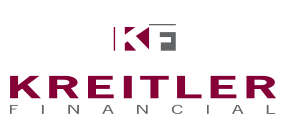Having steady employment with a single employer can be great in that it provides a certain sense of stability and financial security. This can be particularly true if the employer provides you with the option of a 401(k) retirement fund. Many times, employers may match your contributions to the fund which furthers your ability to accumulate capital in preparation for retirement.
On the other hand, you can never tell what will happen in the future. Life can be quite unpredictable and for one reason or another you may end up changing your place of employment. This means you may want to rollover the capital from the 401(k) account sponsored by your former employer to a 401(k) account provided to you by your new employer. Alternatively, you may want to rollover into another type of retirement account not connected with an employer.
What is a 401(k) rollover?
Taking capital from one 401(k) retirement account and transferring it to another 401(k) account or some other type of tax-advantaged retirement account is known as a 401(k) rollover. Some may choose to rollover their 401(k) into an Individual Retirement Account (IRA).
Rollover to an IRA
Generally, the tax implications of rolling over into an IRA depends on what type of IRA you are transferring your capital to and what type of 401(k) you are transferring from. Making a direct rollover from a traditional 401(k) to a traditional IRA may avoid immediate tax consequences as long as you follow the rules for avoiding penalties. It’s important to be familiar with these rules and terms of the retirement plan to make sure you execute the rollover correctly.
Going from a traditional 401(k) to a Roth IRA may result in immediate tax liabilities because a traditional 401(k) is funded using pre-tax money while a Roth IRA is an after-tax retirement vehicle. Therefore, take this into consideration before ultimately deciding to go forward with this type of rollover.
If you rollover from a Roth 401(k) to a Roth IRA you may not have to worry about any immediate tax liabilities since both types of accounts are funded using after-tax funds.
Rolling over to a new employer
Although there is no rule that says you have to rollover your 401(k) from an old employer to a new employer-sponsored 401(k) account, many people want to do this just to keep things simple. This allows you to monitor the performance of your assets from a single account. As long as you follow the correct procedures in transferring funds directly from one account to another there should be no additional tax liabilities.
Maintain 401(k) with your former employer
If your former employer allows it you can choose to leave your capital remaining in the 401(k) account sponsored by your former employer. You may want to do this for certain additional investment options and lower fees offered by your former employer’s plan.
Cashing out a 401(k)
Another option is cashing out the 401(k) account sponsored by your former employer. However, this may come with various tax liabilities and potentially penalties.
Your financial advisor can discuss with you the pros and cons of this option and any of the other aforementioned options.

